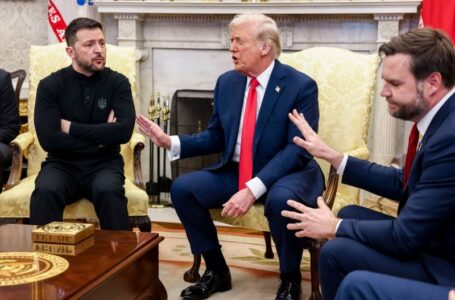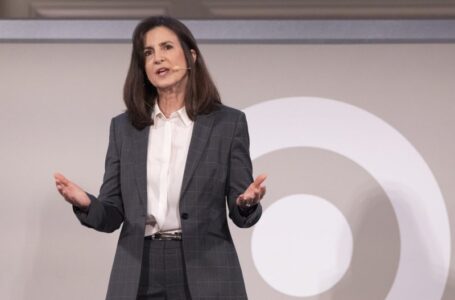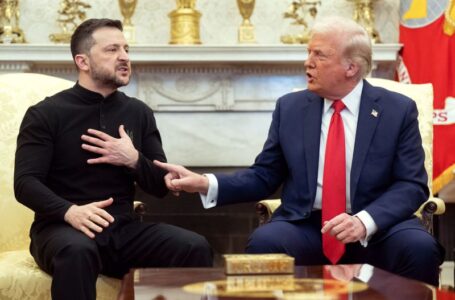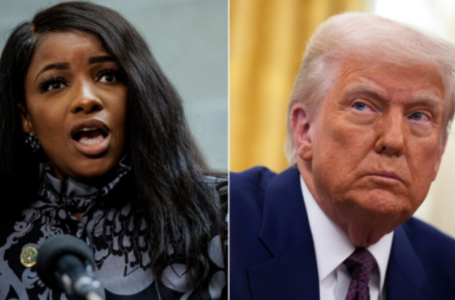Trump’s tariffs could plunge Mexico and Canada into a recession
The imaginary Trump ‘unity’ pivot was just another demand for fealty
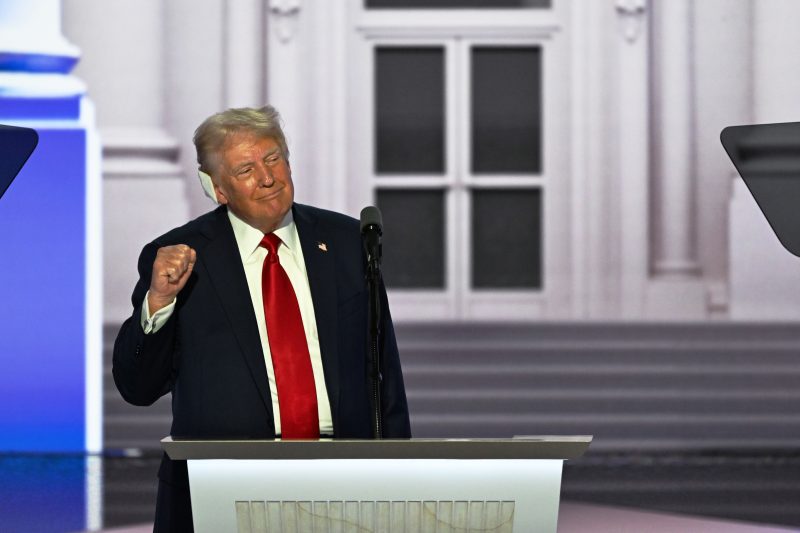

Former president Donald Trump gave two speeches on Thursday evening as he accepted the Republican Party’s presidential nomination in Milwaukee.
The first was a quiet one, almost demure. Reading from a teleprompter, Trump described last Saturday’s attempt on his life and celebrated the retired firefighter who was killed. The teleprompter kept Trump pointed in the desired direction but had the odd effect of draining some of the energy. When he is reading his speech, Trump’s delivery tends to be flat — useful for rattling off campaign promises but not helpful when building to an emotional point.
The second speech, which began immediately after the recitation of Saturday’s events, was vintage Trump. It was riffing about the audience and joking about his allies and bragging about his record. It ran way too long and drained the crowd’s energy. It was a standard Trump campaign presentation with standard timing and standard campaign rhetoric.
News reports suggested that Trump’s acceptance speech would be something different. It would mark a new tone, one centered on a spirit of unity in the wake of the attack. “Getting shot in the face changes a man,” one Trump ally insightfully offered — ignoring that Trump’s injury was to his ear and that the aforementioned ally was former Fox News host Tucker Carlson. Trump, reflecting upon his brush with death, would seek to end America’s deep political divisions.
The day after the shooting, he made this point on social media.
“In this moment, it is more important than ever that we stand United,” Trump wrote, “and show our True Character as Americans, remaining Strong and Determined, and not allowing Evil to Win.”
And then, two days later, he offered another thought that provided insight into his views on unity.
“The Radical Left Democrats are desperately trying to ‘Play the Ref’ by calling for an illegal and unConstitutional attack on our SACRED United States Supreme Court,” he wrote. “The reason that these Communists are so despondent is that their unLawful Witch Hunts are failing everywhere.”
Even before that not-very-uniting post, it was clear that Trump’s “unity” message did not mean he was embracing an opportunity to reconsider his divisive politics. It was, instead, a potential opportunity to absorb the sympathy being expressed by Democrats in the moment and use it to demand that they be nicer to him. Nor was he alone in this. Asked a tough question on Monday, Trump’s son Donald Trump Jr. complained about the insolence of the reporter’s query “even today, even 48 hours later,” as though the question had not been about immigration but about restricting the weapon used by the shooter.
Trump isn’t new at this. He has been seeking public office for nearly a decade now. As such, he has a record. He has called for unity more than once in the past. And each time he has done so, he has quickly made clear that his vision of unity was that his opponents would stop criticizing him and start letting him do what he wants.
During the acceptance speech on Thursday, Trump offered up the promised call for unity — such as it was.
“We must not criminalize dissent or demonize political disagreement, which is what’s been happening in our country lately at a level that nobody has ever seen before,” Trump said. “In that spirit, the Democrat Party should immediately stop weaponizing the justice system and labeling their political opponent as an enemy of democracy.”
He turned away from the prompter to add another point.
“Especially since that is not true,” Trump added. “In fact, I am the one saving democracy for the people of our country.” (He would, at another point in the speech, claim that the 2020 election was won through “cheating.”)
After then mentioning the (dubious) dismissal this week of the classified-documents case against him, Trump demanded that his opponents leave him alone. You know, because of unity.
“If Democrats want to unify our country, they should drop these partisan witch hunts,” he said, “which I have been going through for approximately eight years. And they should do that without delay and allow an election to proceed that is worthy of our people.”
Unity, then, means nothing more than the abandonment of the criminal indictments obtained against Trump for attempting to overturn the 2020 presidential election, something not in the control of “Democrats.” There was no reaching across the aisle, just Trump trying to pull people over to his side.
Nor was there even an effort to demonstrate reciprocity on the point. He criticized Democrats — and “Crazy Nancy Pelosi” — for issuing subpoenas “because they’re destroying our country.” He railed against America’s “failed and even incompetent leadership,” obviously in reference to President Biden.
News reports seized on a claim that Trump would be so removed from partisan bickering that he wouldn’t even mention Biden’s name. Then Trump mentioned Biden’s name.
“I say it often: If you took the 10 worst presidents in the history of the United States — think of it the 10 worst added them up — they will not have done the damage that Biden has done,” Trump said. Seemingly then remembering his pledge, Trump then promised he wouldn’t say the name again.
There was never any reason to take the assertions about Trump’s changed tone seriously. “This is a chance to bring the whole country, even the whole world, together,” Trump told one sympathetic reporter, which wasn’t false. It’s just that Trump was obviously not interested in or capable of doing so. If Trump wanted to be a unifying figure in American politics, he has had lots of opportunities over the past nine years to give it a try.
An acceptance speech is not a normal political speech. It is a unique moment for a candidate to speak to Americans, to voters, and explain why his or her candidacy is worth their support. To deploy inspiring language and craft memorable framing. Trump gave the same speech he always gives, with that slow, teleprompter-driven prologue about the assassination attempt tacked on.
The attempt on his life became another bargaining chip in another deal, one weakened by the lack of evidence that the shooter was motivated by partisan animus. Trump played the chip anyway, demanding that his critics and prosecutors step back in recognition that something significant was different. But in leveraging the shooting as he did, he made clear that nothing was different at all.





